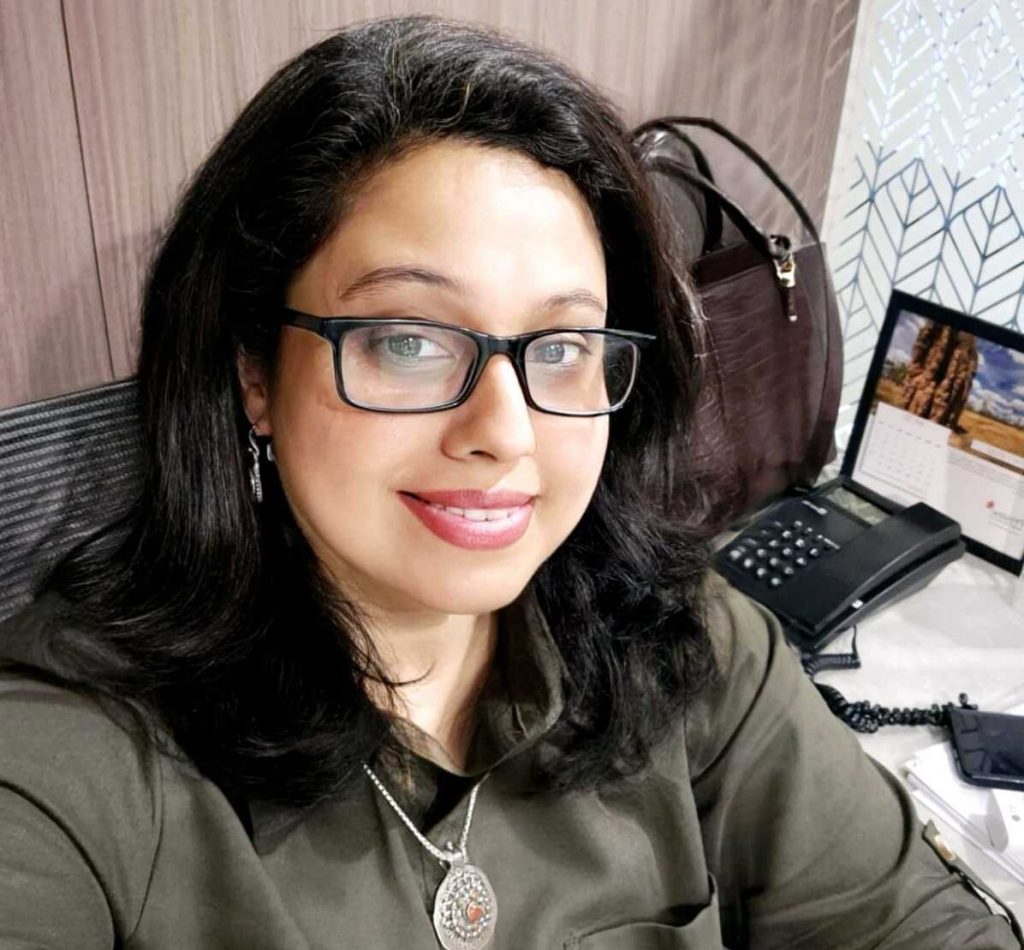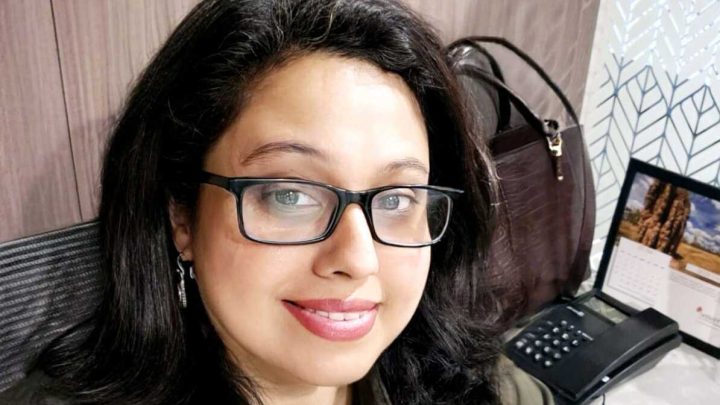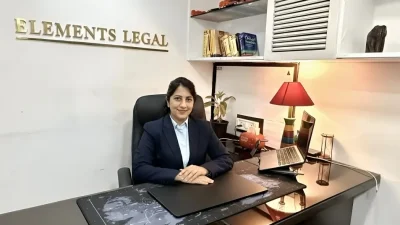Founder
904
0
0
“Growth in Real Estate practice is inevitable and so is learning, any point of saturation leads you to level up.” – Ritu Agwekar, Founder of JURISEYE, Partners.
This interview was taken by SuperLawyer Team
Posted on July 09, 2025
This interview has been published by Anshi Mudgal and The SuperLawyer Team

With a career spanning over two decades and expertise in Real Estate, General Corporate, and Commercial Transactions, what were some of the early experiences or influences that drew you to these specific areas of law?
Early years in Practice are experimental, one has to be open to everything, each work adds value to your knowledge, it is like experimenting with your own skill set, it is only with years that your client decides what you are good at, so I guess the choice is more about getting your skills to explore everything rather than being selective in the early years. And as you go through handling transactions, each being its own type, over the years, you realise that every transaction has that one element which is different, and there lies the experience, which gradually grows through such handling and conclusions of transactions, it’s a process and there’s no short cut to it.
You began your academic journey with a degree in B.Com. What led you to pursue law afterward and was it a deliberate choice or something that evolved over time?
My career chose me, I guess. I was always meant to be here. In fact, I also cleared my ICWA, Group III and CS, Group I, but ultimately my passion for Law was stronger. I was inclined to do something which had an element of variety in its execution and detailing and Law, has a wide range of skill sets to choose from, here there is no limit to the learning or stopping from being variant and practicing the streams that one intends to, one can be practicing various domains simultaneously, too.
Having worked with prominent law firms and institutions, what inspired your transition to establishing an independent practice? What were some of the turning points that shaped this decision?
Growth is inevitable and so is learning, any point of saturation leads you to level up. That is the only constant. One always wishes to have an independent set up, not for enjoying freedom but also for being able to take up newer areas of expertise, grow. The Covid times, made start up advisory and POSH Practice my added areas of legal services, that was the time that I started rendering legal services and complete legal handholding to start-ups, MSMEs and handled their entire contract cycle. I guess it’s always about learning and as a Professional that should be one’s priority.
You’ve handled a wide range of real estate transactions. In your experience, what are some of the major legal challenges that often arise during due diligence in the real estate sector?
Real Estate Practice is one of the most challenging practice areas, because of the wide range of enactments in force, gazettes and regulations, with plethora of enactments, due diligence for specific land types, tenures as also proximity to certain sensitive areas and coastal areas, personal laws, etc makes it an extensive area of practice. Out of the many transactions that I have been a part of and handled, one such was while being a part of a 50acre acquisition, it had multiple enactment permissions, sanctions and permissions, under various Acts, prior to my client being able to buy it, it was for a German Company. One of the most exciting acquisitions.
Your work with startups, SEZ developers, and major infrastructure companies. When dealing with SEZs in particular, how do you adapt your legal strategy? What makes the legal landscape involving SEZs distinct from others?
Start up and SEZ are two distinct set ups, calling for totally different approach. While for a start-up it is important to understand their vision statement to be able to legally handhold them, for a SEZ it’s the scale of acquisition, permissions involved. A start up may still be naïve to hiring a Lawyer yesterday, a SEZ has it all along. While SEZ is about scale, a Start up is about measure. Law remains the bottom line for both, the scale differs. As I mentioned practicing law means gauging the requirement, while start up may just require contracts, IP to be its first choice of legal expertise SEZ calls for enumerable sanctions, due diligence, permissions, contracts, Definitive documents and may more to even begin with.
You’ve played an active role in promoting POSH compliance and workplace inclusion. In your view, how is the legal framework in India evolving to support safer, more equitable work environments?
Yes, as I mentioned I started my POSH practice in the year 2019 and it was a turning point in understanding how an organisation can be ignorant about an employee being mentally harassed (sexually). It has been 2013 since the enactment came in force, but the way things have evolved in view of the present workplace and the diversity of the workforce, calls for a different perception of how we would now interpret the enactment, more gender neutral. But by and large it’s the women who need to be safeguarded against the harassment and we have to focus and emphasize more on gender sensitization and education. The practice in POSH is a challenging area of practice, which calls for proper interpretation of law, policies of an organisation and understanding the human aspect of the practice, too. There still needs to be a lot of work to be done in the domain and I personally feel, the real achievement lies in not requiring any Law to tell people how to behave/act with one another. It’s about being able to strike a chord between a healthy and mutually dependable, respectful and growth oriented work environment for all.
With the Data Protection and Digital Privacy Act (DPDPD) gaining prominence, how ready do you believe Indian businesses are to meet compliance requirements? What specific impact does this have in sectors like real estate?
Absolutely ignorant is how I would view it as, as of now. With we still awaiting the Rules to be framed, I guess it’s still a wait and watch scenario with most. Though there is awareness about something, it’s not clear as to how much detrimental it can be, if non-complied with, and that’s a huge gap that we as Professionals, working in this domain, have to fill.
You’ve received several accolades for your work. What key advice would you offer to aspiring legal professionals particularly those looking to build a corporate practice?
Law is the profession for the patient players, you cannot rush to success in this field, it’s about Perseverance and constant Learning, here it is about knowledge first. One important thing is never compare your success with any measuring tape, accolades, awards, included. Success means to each its own and thus does not have any set yardstick of measurement. Focus on your journey, upgrading, learning and do everything with a lot of passion and involvement, nothing is Magic, it takes time to shape up and show results. Patience is the key. There are wide choices in todays times and one can pick and choose that one intends to and stay focussed on building that. But, levelling and upgrading is a must. Law is an ever growing field and a need for all, so learning is absolutely inevitable, I know it all attitude, may not work.
With such a diverse and dynamic legal portfolio, what drives your passion for the law each day? What has sustained this motivation and commitment over the years?
Your question has the answer- PASSION and I would value Discipline more than Motivation, Consistency above Perfection, its ones constant effort and dedication that keeps you going, every day.
Get in touch with Ritu Agwekar –







No comments yet
Be the first to share your thoughts about this interview.